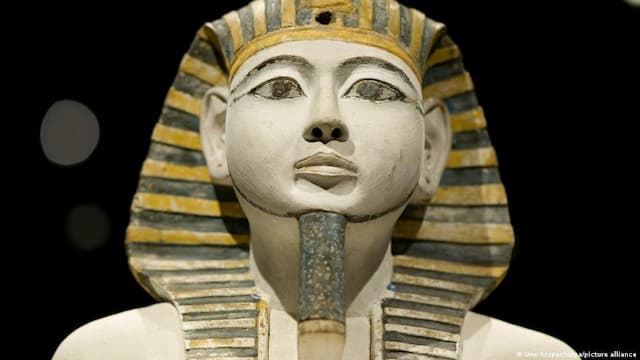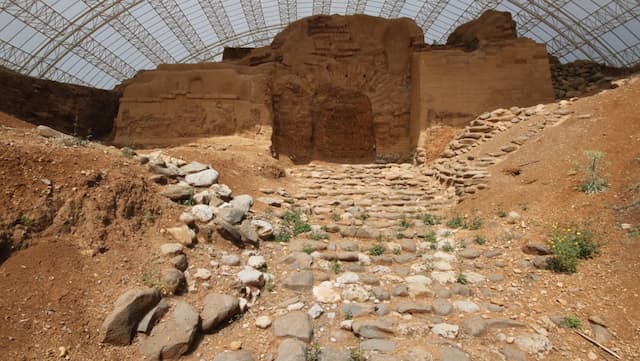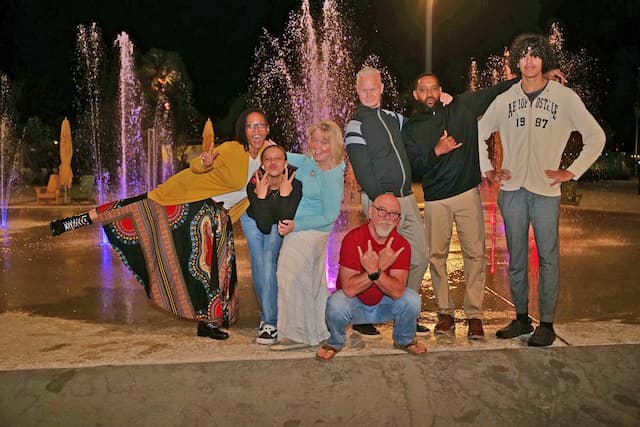Dreams in prison (Genesis 40:1–8)

“Then we’ll see what comes of his dreams,” his brothers said as they threw Joseph in a pit (37:20). He had big dreams of ruling the sun, moon and stars (37:9). Instead, we find him in a dungeon with no control over his own life, ordered to serve prisoners (40:4).
So, serving prisoners is what Joseph does. One morning a couple of them looked more dejected than ever. “Why the long face?” he enquires (40:7). Turns out they had dreams too.
Dreams are fascinating. Sigmund Freud claimed to have developed a “technique by which dreams may be interpreted” (The Interpretation of Dreams, Sterling Press, 2010, 9). I’m not convinced all dreams are meaningful. I tend to dream more when I haven’t had time to process what happened during the day. Most of my dreams are just garbage disposal: taking out the rubbish so we’re ready to face a new day when we wake.
There are exceptions. There have been occasions when a dream felt like a revelation of something I had not realized while awake. It felt significant, yet confusing. I needed time to process it, to reorient my being in light of this fresh way of seeing. I think these two guys had that kind of dream. It felt meaningful, but they didn’t know what it meant.
Joseph noticed. He listened. He pointed them to the source of meaning: Do not interpretations belong to God? Tell me your dreams (40:8).
I love this partnership between Joseph and God. He shows no surprise that God would give revelation to foreigners who were not part of the family of Israel. No doubt they worshipped Egyptian gods like Amon-Ra. And yet, God is always revealing himself to people who don’t know him.
God, open our eyes to what you are doing. We’re not presenting you in a vacuum. You’re already there ahead of us, working in human hearts.
So instead of pushing our agenda or being fearful of people’s beliefs, we could start with, “Tell me your dreams.”
I mean, Joseph was God’s man in Egypt. But God didn’t give his revelation to Joseph. He gave it to the prisoners. The same thing happens in the next episode: God gives his revelation not to Joseph but to Pharaoh (Genesis 41). It’s like God is always revealing himself to people who don’t even know who he is (Isaiah 65:1). They don’t know what to make of his revelation, but they’re curious, aware that there’s more than they understand. We’re probably missing most of what God is doing if all our energies are focused on our church meetings.
Maybe it is the prisoners who need God’s revelation (compare Luke 4:18).
Joseph serving prisoners — it’s a definition of ministry. It’s so simple: see what God is doing and join in.
Where can you see God at work today? Where are the prisoners? Who are you listening to? How is God revealing himself to them? How will you partner with him?
What others are saying
Chrysostom (fourth century AD), Homilies on Genesis 63.4:
This remarkable man, however, concerned for their comfort, noticed that they were dismayed by the experience of the dreams and confused in mind; so he asked, “Why so downcast today?” The dejection on their faces, you see, betrayed the apprehension within them. Hence a sage too has said, “When the heart is free from care, the face beams, but when it is in mourning the face falls.” So, when he saw them lost in dejection from the experience of their dreams, he questioned them to discover the cause. See how, even when he found himself in prison, he gave evidence of his characteristic virtue and was concerned to relieve the sadness of others.
Gordon J. Wenham, Genesis 16–50, WBC (Dallas: Word, 1994), 382–383:
The Egyptians shared a belief, widespread in antiquity, that “sleep puts us in real and direct contact with the other world where not only the dead but also the gods dwell. Dreams therefore are a gift from the gods” (Vergote, Joseph en Égypte, 48). Their interpretation, however, was a complex science entrusted to learned specialists; while a dreamer might have a hunch whether a dream was auspicious or not, he had to rely on experts for a detailed explanation. In prison they had no access to such expertise; yet being prisoners they were most anxious to know their fate — hence, their despondency. According to Joseph, however, it is not learning but inspiration that matters. “Don’t interpretations belong to God?” He was later to make the same point to Pharaoh himself: “It does not depend on me, but God will declare to Pharaoh his well-being.” Joseph’s attitude is consonant with the OT’s rejection of occult practices and its reliance on prophecy as a means of discovering God’s will (Deut 18:10–22)
Related posts
- How serving can ransom many (Mt 20:28)
- Jesus’ liberating kingship (Mt 11:25-29)
Seeking to understand Jesus in the terms he chose to describe himself: son of man (his identity), and kingdom of God (his mission). Riverview Church, Perth, Western Australia
View all posts by Allen Browne










